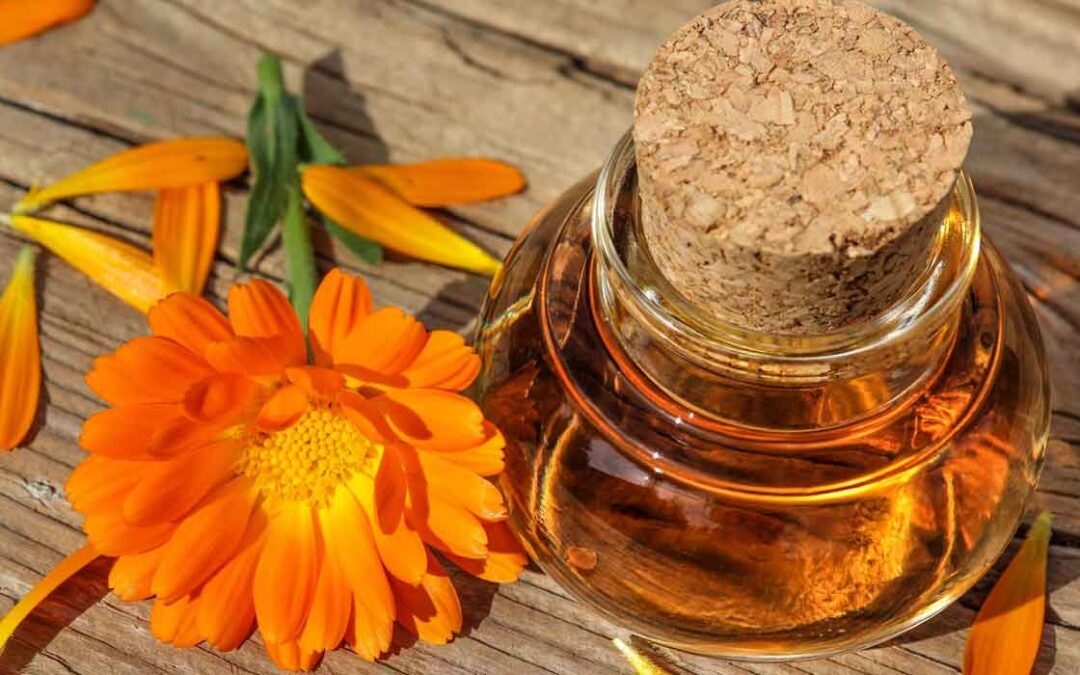calendula oil

When you take a walk in a garden or park, some flower strikes from a distance. These are either the ones with the most beautiful formation, or the cluster-like natural appearances, or the ones with the brightest colors. But how often we do recognize them? We don’t know their names. And to some extent, we don’t know how they can be helpful for our health. Calendula is also one such flower.
With shades of orange, yellow and red, these can easily lighten up any garden. They appear in a symmetrical shape and resembles daisy flowers. While we can appreciate the beauty of calendula all day, we shall also know about their importance and how they can be used. Calendula oil is very helpful for humans. Let’s know more about this, starting from the basic information about calendula.
Overview of calendula flowers
Calendula is a small genus that contains only 15 to 20 species. They have all herbaceous plants and the family is Asteraceae. Regionally, it is grown more in temperate regions. North Africa and Eurasia were the first ones to cultivate these. The calendula you see today is the pot variety and is very well known for its ornamental purposes. It is also a common ingredient in several herbal products as well as cosmetics. An amazing fact about the flowers is that they have edible petals and can even be added to your fruit salad recipes.
Calendulas can be both annual and perennial. They have a waxy and smooth glandular stem. The flower branches emerge from the crown of the plant which is located at the bottom of the plant close to the soil. The leaves resemble that of cabbages. They can be toothed and borne alternately along the stems. Some species of the flower also have a sessile leave meaning that they lack a leaf stalk and have clasping bases of the leaves. The flower heads are composite and born singly just like a Hybrid Tea rose. The petals can be orange, lemon yellow, deep orange, or bright yellow. The central disk flowers can be purple, yellow, or red. The achene of the fruit is curved. Calendula
Calendulas’ propagation is quite simple. While many gardeners grow them from cuttings, the easiest method remains the seeds. One can easily harvest the seeds of the calendula in the summer season. On becoming dry, the flowers will leave a strong hip that can be easily used to collect seeds. The seeds should be dry and free from moisture. You can sow them easily during monsoon or pre-winters season. The sprouts emerge in a week or two. The flowering will be after 2 months.
Calendula uses
The benefits are plenty when it’s calendula in the picture. The flower is a popular choice of ingredient when making medicine even in ancient times. The elements present in the flower helps to treat muscle spasms and period pain. It also assists in starting the menstrual period and acts as an analgesic, meaning that it reduces fever.
Calendula is highly beneficial in treating sore throat and ulcers of the mouth. It can also help in the treatment of cancer,Stomach Flu, duodenal ulcers and stomach Sulcers.
The miraculous flowers have several uses as a topical agent as well. When it is used on the skin, it reduces pain. It is an anti-inflammatory herbal flower and can help reduce swelling. When you have a stubborn wound that won’t heal, calendula might just do the magic. As a topical agent, it can prevent nosebleeds, rectum inflammation, eyelid inflammation, hemorrhoids and varicose veins.
Calendula oil and its uses
Just like with herb oil, calendula oil portrays several disease-curing properties. The oil is easy to extract and is often a good choice of an alternative treatment. It is also a fine complementary treatment with regular treatment options. The oil has various properties that make it a good agent in healing wounds, soothing eczema and curing rashes. It is also a good antiseptic agent.

The main method of preparation of oil is infusing the flowers of the plant along with carrier oil. The oil can then be added as a product in making creams, salves, balms, or ointments. The oil also finds its effective usage in tea, capsules, or tinctures.
The anti-inflammatory, antifungal and antibacterial uses are very common in our day-to-day life. Let’s know more about its specific uses for our health:
Calendula oil might be an elective solution for treat different skin conditions just to improve the quality and presence of the skin. Here are seven different ways calendula oil might be utilized for the skin.
Calendula cream as sunscreen

Calendula oil may be a possibility for sun security. A 2012 research center investigation found that calendula oil had SPF properties as a cream combination. However, more proof is expected to help calendula cream as a potential sunscreen.
Meanwhile, adhere to a sunscreen demonstrated to attempt to diminish the odds of skin disease for you and your family.
Calendula oil for wounds
Calendula oil may speed up injury healing. Exploration from 2013Trusted Source recommends that using aloe vera or calendula ointment alongside standard consideration accelerated episiotomy recuperation time.
In the examination, ladies who utilized either aloe vera or calendula ointment at regular intervals for five days showed improvement in manifestations like redness, swelling, and bruising. Adding aloe or calendula ointment to standard consideration was discovered to be more powerful than using standard consideration alone.
Calendula oil for acne

You can easily use calendula oil to treat acne. One lab study found that calendula concentrate might be valuable in treating and preventing acne vulgaris, but more exploration particularly concentrates on people, is expected to help these findings.
You can take a stab at washing your face using a calendula cleaning agent. You can apply calendula cream, oil, or spot treatment to your entire face or use it to target acne-inclined regions. You may even wish to attempt a face cover treatment once each week.
Calendula oil for dermatitis or eczema

Although there’s no exploration to help it, many people use calendula oil to treat dermatitis and eczema dark skin discoloration. However, one investigation discovered it can help assuage pain from dermatitis in individuals receiving radiation for breast cancer.
Calendula oil for diaper rash
Calendula oil may help relieve diaper rash. A little report in 2012 found that while an aloe vera cream was successful in treating diaper rash, a calendula ointment was significantly more helpful. However, this exploration is preliminary. To ease diaper rash, you can take a stab at applying a modest quantity of calendula oil all alone or blended in with aloe vera on the influenced region a couple of times each day.




